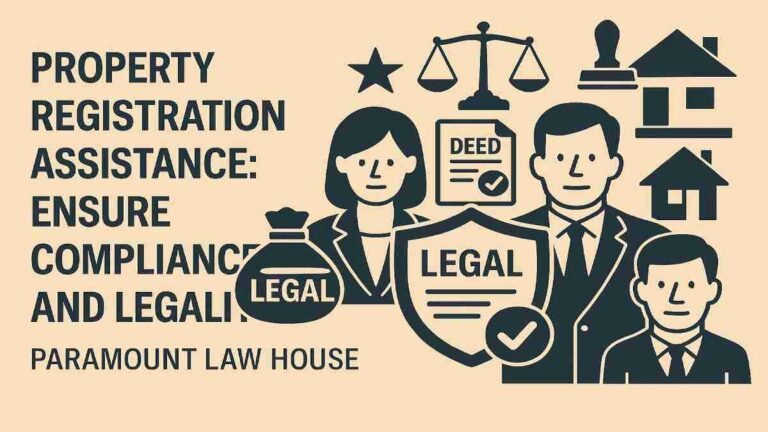Real Estate Broker Agreement Review: Protect Your Interests
Real Estate Broker Agreement: When embarking on the journey of buying or selling a property, a real estate broker agreement becomes a…
Real Estate Broker Agreement: When embarking on the journey of buying or selling a property, a real estate broker agreement becomes a crucial document. It outlines the terms and conditions of the relationship between you and the broker, ensuring that both parties are protected and aligned in their goals. However, navigating the complexities of such an agreement can be daunting. This article will delve into the key elements of a real estate broker agreement and offer insights to help you safeguard your interests.
Protect Your Interests: Paramount Law House
Understanding the Agreement
A real estate broker agreement is a legally binding contract that establishes the terms of representation between you and the broker. It typically includes the following essential elements:
- Parties Involved: Clearly identifies the parties involved, including the seller or buyer (you), the broker, and any affiliated agents.
- Scope of Services: Specifies the services that the broker will provide, such as listing the property, finding buyers, negotiating offers, and handling paperwork.
- Commission Structure: Outlines the commission that the broker will earn upon the successful sale or purchase of the property.
- Term of Agreement: Determines the duration of the agreement, which can be exclusive or non-exclusive.
- Agency Relationship: Clarifies the type of agency relationship established, such as exclusive right to sell, exclusive agency, or open listing.
- Dispute Resolution: Specifies the mechanisms for resolving disputes between the parties, such as mediation or arbitration.
Key Considerations for Review
When reviewing a real estate broker agreement, several key factors should be carefully considered:
- Commission Structure: Ensure that the commission structure is fair and reasonable, and that there are no hidden fees or charges.
- Agency Relationship: Understand the implications of the agency relationship chosen and how it affects your rights and obligations.
- Term of Agreement: Consider the length of the agreement and whether it aligns with your goals and timeline.
- Dispute Resolution: Familiarize yourself with the dispute resolution process and ensure that it is fair and efficient.
- Exclusions and Limitations: Be aware of any exclusions or limitations in the agreement that may affect your rights or the broker’s obligations.
- Termination Provisions: Understand the circumstances under which the agreement can be terminated and the consequences of early termination.
Seeking Legal Advice
While you may be able to review the agreement yourself, it is highly recommended to consult with a real estate attorney to ensure that your interests are fully protected. A legal professional can provide expert guidance and help you negotiate favorable terms in the agreement.
Frequently Asked Questions
In an exclusive right to sell agreement, the broker is entitled to a commission regardless of who finds the buyer. In an exclusive agency agreement, the seller can still find a buyer without owing a commission.
The ability to terminate the agreement early depends on the terms outlined in the contract. Some agreements may include provisions for early termination under certain circumstances.
If the broker breaches their duties under the agreement, you may be entitled to remedies such as damages or termination of the contract.
Yes, you can often negotiate the terms of the agreement to better align with your needs and preferences.
If you are a buyer, you may want to consider entering into a buyer’s agent agreement to ensure that you have your own representation in the transaction.
Conclusion
A real estate broker agreement is a vital document that can significantly impact the outcome of your property transaction. By carefully reviewing the agreement and seeking legal advice, you can protect your interests and ensure a smooth and successful experience.
Read More
- RERA Compliance Made Easy: Real Estate Legal Support
- Construction Law: Essential Guide by Property Lawyers, Legal Support & Best Practices
- Building Joint Venture: Expert Tips and Insights
- Sale Agreement drafting
- Building Plan Approval: How to find the Best Real Estate Property Lawyers 24/7?
- Ministry of Housing and Urban Affairs:






